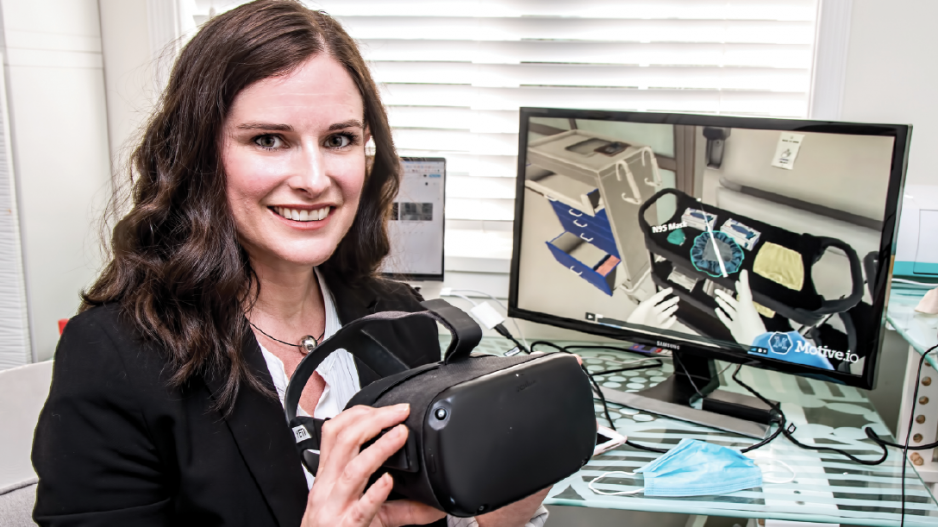Just ahead of the pandemic, Burnaby-based virtual reality (VR) firm Motive.io was focused on developing training simulations for clients in oil and gas, airlines and hospitality.
“Obviously, all of those industries have really suffered, and they’re in kind of crisis-management mode,” said Sara Johnston, co-founder and chief operating officer of the five-year-old company. “But then other industries like health care have really come to the forefront.”
And like an ambulance rushing to an accident scene, teams at Motive.io and Accenture plc (NYSE:ACN) swiftly turned their attention to the COVID-19 crisis, building a training program in eight weeks to help health-care workers apply personal protect equipment (PPE) as safely as possible.
The VR simulations underwent quality control at the hands of physicians and debuted at B.C. Women’s Hospital at the end of September.
They will also be rolling out at the University of British Columbia’s medical school in the coming weeks.
“Nobody has time to train anybody else. Not to mention that the [protocol] keeps changing,” said Johnston, whose company’s platform allows clients without any coding skills to adjust the program and update it with the latest PPE protocols from the province.
“It’s infinitely more engaging than watching a video on donning and doffing PPE.”
A March 2019 study published in the Infection Control and Hospital Epidemiology medical journal found 39% of health-care workers made errors in removing PPE.
This in turn increased the incidents by which they became contaminated, the research concluded.
The risk facing front-line workers hasn’t been lost on other West Coast VR specialists.
Vancouver-based Virtro Entertainment Inc. has been teaming up with Simon Fraser University’s School of Interactive Arts and Technology (SIAT) to develop their own simulations for health care workers donning PPE in long-term care facilities.
These simulations feature “virtual humans” that have been programmed using artificial intelligence (AI) and machine learning to hold lifelike conversations with trainees.
“Literally, you’re saying something, they’re processing and understanding what that is, matching that against the database and then delivering your response according to what they think is the best answer they can provide to you at that time,” Virtro president Lee Brighton said. “They can literally have a conversation.”
A prototype is being deployed and talks are underway to expand training to health-care workers across Canada.
Steve DiPaola, a professor at SIAT who specializes in VR and AI, said such advances in virtual reality are injecting some humanity into the way we engage with technology, especially as workers become more isolated while working from home.
His research and oversight of SIAT’s iVizLab includes computer modelling of human expressions and emotion-gesture tracking.
“We have an avatar system that’s able to see if you were there,” DiPaola said. “[It] would see the emotions on your face it would try and use those emotions within what you’re saying and then be emotive itself.”




